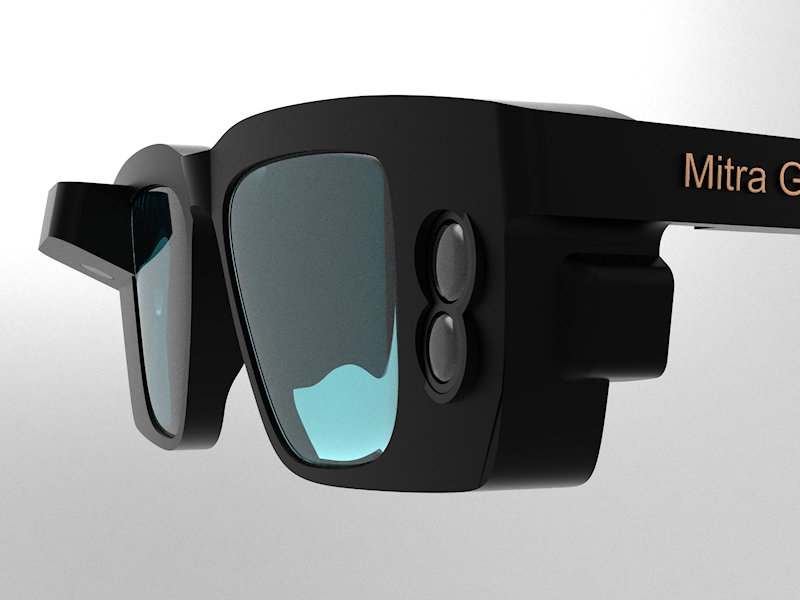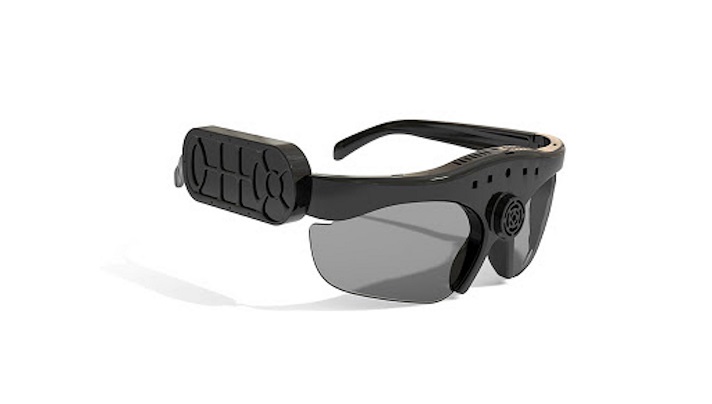Empowering Freedom With Assistive Innovation for the Blind
The combination of assistive technology for individuals who are blind or aesthetically impaired represents a substantial advancement in fostering self-reliance and enhancing quality of life. With a variety of tools-- from screen readers to ingenious tactile tools-- these innovations not just help with navigating and interaction however additionally promote social addition and involvement in numerous elements of life. As we check out the diverse kinds of assistive tools and their real-world applications, it ends up being clear that the effect is extensive. The development of this modern technology increases important questions about accessibility and future advancements that necessitate more examination.
Recognizing Assistive Technology
Although assistive modern technology has actually progressed significantly over the years, its essential purpose remains the exact same: to boost the top quality of life for people with impairments, specifically those who are blind or visually impaired. This modern technology includes a broad variety of tools and tools that help with freedom and performance in day-to-day activities.
Assistive innovation can be categorized into low-tech and state-of-the-art solutions, each designed to fulfill particular needs. Sophisticated gadgets usually include software application applications, specialized hardware, and adaptive gadgets that use innovative technology to provide support in various contexts. Conversely, low-tech options may involve day-to-day items that are changed to improve ease of access, such as magnifiers or responsive pens.
The integration of assistive modern technology into the lives of individuals that are blind or aesthetically hindered not just promotes autonomy however also cultivates social inclusion and engagement in professional and educational atmospheres. By leveraging these modern technologies, users can browse their surroundings, gain access to info, and connect effectively, thus enhancing their general top quality of life. Comprehending assistive technology is critical for advocates, professionals, and caregivers that aim to sustain individuals in maximizing their possible and accomplishing higher freedom.
Sorts Of Assistive Gadgets
Assistive devices for the aesthetically damaged and blind are necessary tools that enhance daily living by attending to specific difficulties encountered by users. These devices can be generally categorized right into three major types: optical gadgets, electronic tools, and sensory devices.

Sensory gadgets, such as Braille screens and tactile maps, offer alternative methods to get info. Braille shows transform electronic message right into Braille, allowing users to review touch. Tactile maps use spatial understanding with increased textures and lines, permitting much better ecological awareness.
Together, these assistive gadgets encourage individuals with visual impairments to engage even more completely with their surroundings, promoting better self-reliance and confidence in day-to-day activities.

Effect On Daily Life
The assimilation of assistive technology into the day-to-days live of people that are visually damaged or blind considerably enhances their ability to navigate and engage with the globe around them. Devices such as display readers, Braille displays, and mobile applications facilitate accessibility to information, allowing individuals to engage blog with electronic material, interact effectively, and take care of day-to-day jobs separately.
Additionally, technologies like wise glasses and navigating apps provide real-time assistance in strange environments, enhancing wheelchair and self-confidence. These tools allow customers to determine barriers, reviewed indicators, and even recognize faces, hence promoting a feeling of freedom in public spaces. In addition, home automation systems, which can be controlled through voice commands, allow people to manage their living environments better, improving comfort and security.
The effect of assistive modern technology extends beyond useful jobs; it advertises social addition and psychological well-being. By connecting the void between individuals and their environments, these technologies empower individuals to get involved completely in neighborhood tasks, go after instructional opportunities, and engage in purposeful connections. Eventually, the innovation of assistive modern technology contributes in redefining the opportunities for people that are blind or aesthetically impaired, causing a more inclusive and easily accessible society.
Success Stories and Endorsements

An additional powerful endorsement comes from Mark, a recent college grad who used screen analysis software program throughout his academic journey. This innovation enabled him to gain access to program products and take part in discussions, eventually causing his effective shift into the labor force. Mark credit ratings assistive modern technology for encouraging him to achieve his job goals, stressing its role in leveling the playing field for people with aesthetic problems.
Furthermore, recreation center have reported increased engagement in their programs thanks to the introduction of available digital platforms. These platforms have made it much easier for individuals to connect, share resources, and assistance one another. These success tales jointly highlight the extensive result of assistive technology in fostering self-reliance, enhancing high quality of life, and breaking down obstacles for the visually impaired and blind community.
Future Fads in Assistive Technology
Emerging modern technologies are poised to revolutionize the landscape of assistive tech for individuals who are aesthetically impaired or blind. Innovations in expert system (AI) and artificial intelligence are improving the capabilities of devices, enabling more instinctive customer experiences. AI-driven applications are progressively able to check out and recognize items text aloud in real-time, giving individuals with important info about their surroundings.
Furthermore, advancements in wearable modern technology are developing new possibilities for freedom. Smart glasses geared up with enhanced reality features can overlay important details onto the individual's field of view, helping with navigation and communication with the atmosphere. In addition, the assimilation of Net of Things (IoT) tools is enhancing ease of access in wise homes, enabling users to control devices and obtain alerts through voice commands or tactile user optometrist in interfaces.
The development of braille screens and tactile feedback systems is also on the increase, promoting accessibility to digital content and boosting interaction. As these technologies remain to progress, they guarantee to improve day-to-day living, academic opportunities, and work prospects for individuals with local eye care aesthetic impairments. Continual cooperation in between technologists, individuals, and campaigning for groups will be vital in guaranteeing these innovations fulfill the needs of the neighborhood effectively.
Verdict
To conclude, assistive technology plays an essential function in enhancing the self-reliance of people who are aesthetically impaired or blind. By supplying crucial tools and resources, these technologies promote boosted gain access to, interaction, and navigation to details, consequently cultivating autonomy and self-esteem. The transformative impact of assistive devices not just advertises reliable communication with the environment however likewise motivates social inclusion and engagement in different elements of life, ultimately encouraging individuals to flourish within their communities.
The assimilation of assistive technology for individuals who are blind or aesthetically damaged stands for a considerable advancement in fostering independence and improving high quality of life.The combination of assistive innovation right into the lives of individuals who are blind or aesthetically hindered not only advertises freedom yet likewise fosters social incorporation and engagement in instructional and expert environments. Eventually, the development of assistive modern technology is important in redefining the possibilities for individuals that are aesthetically impaired or blind, leading to a more comprehensive and accessible culture.
Several individuals that are aesthetically damaged or blind have shared inspiring success stories that highlight the transformative influence of assistive technology on their lives.In final thought, assistive innovation plays a pivotal role in enhancing the independence of individuals who are blind or visually damaged.
Comments on “Top Braille Displays and Notetakers to Enhance Accessibility for the Blind”